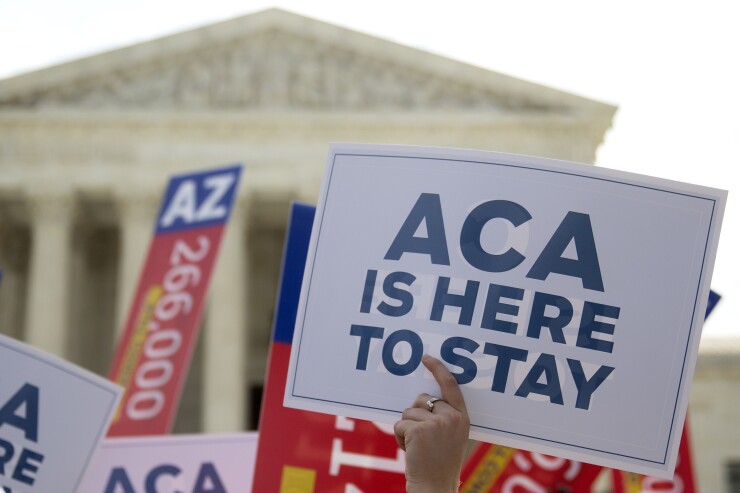Accountants may see some of their business clients getting caught up this summer in IRS activities to enforce the Affordable Care Act.
The IRS has started issuing Letter 226J penalty notices for the 2017 tax year, along with other penalty assessments related to ACA enforcement. Agency staff are spending more time reviewing potential ACA violations, and putting the onus on employers to prove they have complied with the law.
Here are some signs that the IRS is becoming more assertive in efforts to enforce the ACA:
- The IRS has started issuing Letter 226J penalty notices for ACA noncompliance under IRC Section 4980H for the 2017 tax year. The tax agency just completed sending its Letter 226J penalty notices in June to employers that it believes failed to comply with the ACA in the 2016 tax year. This is the quickest we have seen the tax agency transition from issuing penalty notices from one tax year to the next, a sign that IRS ACA enforcement activities are escalating.

- The IRS has indicated it is now limiting extension requests to one 30-day extension for each IRS notice received in the penalty process, requiring employers to act with even more urgency in responding to a penalty notice.
- IRS staff is paying greater attention to the methodology and data used in employers’ determination of full-time employees in ACA filings for the 2017 tax year. This is a deeper level of review than undertaken for previous tax years. ACA penalties are often triggered by employers providing inaccurate information on the number of full-time workers they employ.
- The IRS is asking individual taxpayers to obtain documents from their employers to prove they were entitled to receive premium tax credits to offset health insurance purchased through government exchanges.
Employers are being required to provide proof that they filed ACA information with the IRS. Over the past few years, many employers relied on do-it-yourself software and payroll companies to submit ACA information to the IRS on their behalf. In some cases, the software and payroll companies thought they submitted the information electronically to the IRS, not realizing the submissions were never accepted. Now, many employers are realizing the IRS never received their submissions and, as a result, they are being issued ACA penalty notices. Expect IRS staff to insist that employers obtain submission acceptance notices to prove they filed with the IRS as part of their defense to have ACA penalty assessments dismissed.
With the IRS becoming more aggressive in its enforcement activities and with ACA penalties potentially in the millions of dollars, accountants may want to advise clients they believe to be vulnerable to undertake an ACA penalty risk assessment. This assessment can determine if employers are considered to be an applicable large employer by the IRS, and if they are at risk of receiving IRS penalties under Section 4980H. This assessment involves a review of IRS Forms 1094-C and 1095-C. Some outside experts may offer to undertake this assessment at no cost.
It’s also a good time for accountants to check with clients that have more than 50 full-time employees to determine if they have been filing ACA information with the IRS annually, as required by law. If they have not, they may be at risk of significant ACA penalties under IRC Section 6721/6722. Accountants should work with these employers to file this information as soon as possible to avoid receiving an IRS Letter 5005A penalty notice.
Now is the time for accountants to check in with their business clients to discuss their ACA compliance process to determine if they may be at risk of paying significant financial penalties to the IRS because they have failed to comply with the ACA.





